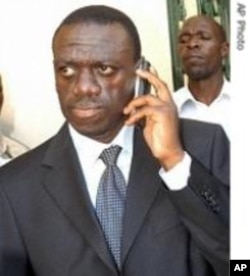A retired Ugandan Supreme Court judge said two of the four Supreme Court justices who voted in favor of dismissing the 2006 presidential election petition brought by opposition leader Kizza Besigye have changed their minds and now believe the elections results should have been overturned.
In a split decision, the Supreme Court ruled in 2006 that there was non-compliance with the election laws.
But the judges disagreed on whether the non-compliance and other reported malpractices substantially affected the results in which President Yoweri Museveni was re-elected.
Retired Justice George Kanyeihamba said he hopes the justices would vote differently if another petition were to be brought before them, especially as Uganda prepares for another presidential election in 2011.
“I have said that the decision to have upheld the election was held by a majority of four to three, but since then, two of the four have had second thought about their judgment,” he said.
Justice Kanyeihamba would not name the judges, but said people can read about their opinions.
On why the judges are now having a second thought, Kanyeihamba said there was nothing they could do about their ruling in the 2006 petition.
“In Uganda, as in most countries, once you make the decision you cannot change it. You can only change your opinion in a different case which could be different later whatever, but the one that was decided in 2006 stands, its consequences stand. You cannot change that,” Justice Kanyeihamba said.
As Uganda prepares for another presidential election next year, Kanyeihamba hopes that in the event a similar situation occurs, his fellow Supreme Court justices would think about their 2006 decision and rule differently.
“One would hope that if a similar situation were to occur, their Lordship in the higher court would reflect on what we did in 2006 and I may say in this case judge differently,” Kanyeihamba said.
He called Uganda’s proposed Public Order Management Bill of 2009 as the worst piece of legislation.
Justice Kanyeihamba appealed to civil society organizations to protest against the bill.
“Under the Ugandan Constitution, if anyone feels that somebody’s rights are threatened or about to be violated, they can bring a petition in the court. So I say that civil society organizations could do now, without waiting any further, challenge this bill in a constitutional court and that article by saying that the rights of Ugandans – the right of assembly, the rights of speech – are now threatened and a court will entertain the petition,” Kanyeihamba said.
He said civil society groups should go ahead and challenge the bill before it becomes law.









